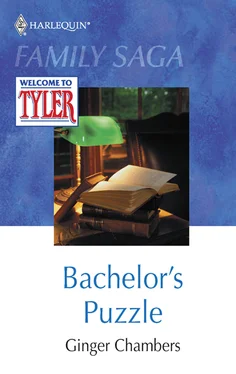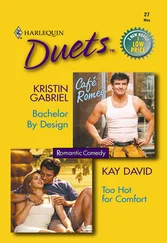* * *
ROBERT TURNED AWAY from the pay phone at the service station. His friends were at home and had begged him to visit. It was months since they’d heard from him, they’d complained. And they were right. During term, there was always so much to do in the design studio, working with his students, challenging them to grow and to see beyond what was expected. Students of architecture, particularly during the last weeks of a semester, were some of the most overworked scholars on campus. Some practically lived in the studio in order to meet their deadlines. Accordingly, their teachers devoted long hours to the subject as well—a fact that Robert wouldn’t change. He loved working with his students, conveying knowledge and receiving in turn intellectual stimulation.
Yet between his work at the university and his work with the firm, little time was left to keep up social obligations. Friends sometimes became lost in the shuffle. Which was one of the reasons why he had never married. He didn’t feel his life-style would be fair to a wife. He had heeded perhaps a little too well the advice of an admired professor—that an architect should never encumber himself prematurely with outside obligations. Translated, that meant a wife, children and a mortgage. Not if the architect intended to travel extensively or to immerse himself in all the work involved in starting his own practice. It was advice he himself had given students over the years, advice that he still believed. Only sometimes did he wonder if he might have carried it a little too far.
Robert shrugged the thought away. He paid for the gasoline that had been pumped into his car and set off along the highway that would take him to Lake Geneva. But instead of looking forward to the enjoyment he would soon experience upon seeing his old friends, he found his thoughts returning to the Tyler library. Not the new one. The old one.
Robert had loved old buildings all his life, particularly old homes. To him, they were the key to another age—an age that in many ways was much more graceful than the present. As a child, he had lived in just such a house, creating fantasy worlds from basement to attic. He had always dreamed of owning one himself, but as the years passed, his dream faded. Still, he loved to look at such structures and to poke around in them when given the chance.
His business in Tyler afforded just such an opportunity. The old library, though decried by its users, was interesting to him. His guess was that it had been built at or near the turn of the century, and judging from the exterior and interior style, influenced by the revolution in architecture that had taken place around that time. It was the period when fellow Wisconsinite Frank Lloyd Wright had begun to evolve the personal style that so greatly influenced twentieth-century architecture.
Robert’s two short investigations of the building had whetted his appetite to see more. Both times he’d been distracted by other things: the water damage to the books, his second appointment with the librarian. He wanted more time to look around. And he saw no reason why, as he worked closely with Elise Ferguson, he couldn’t take it.
* * *
THE DOORBELL RANG and Elise went to answer it. Butterflies were aflight in her stomach. The fluttering increased when she saw that Robert Fairmont stood on the porch. She’d known all along it would be him, but reality seemed more potent than her thoughts.
“Hello,” she said, striving to keep her voice circumspect.
“Hello,” he returned, a smile both in his eyes and on his lips.
She stepped back, wordlessly inviting him inside. He moved past her into the formal front room. She saw his gaze quickly take in his surroundings—the heavy furniture and curtains, the ornate rug. Repeatedly over the years since their parents’ death Elise had wanted to redecorate, but Bea had stayed her hand. Bea didn’t welcome change. She wanted everything to remain as it was, no matter how out-of-date or ungainly.
Elise cleared her throat. “You, uh, saw your friends?”
“Yes. You look...rested.”
Elise shifted uneasily. She wanted to tell him about the numerous telephone calls she’d received from people who wanted to know how she felt. They’d come from patrons who had been at the library, from the library staff, from people who hadn’t been there but who had heard the news through Tyler’s lightning-quick grapevine. In fact, she’d spent more time on the phone reassuring everyone than she had doing anything else. But she couldn’t make herself tell him. Having him inside her home completely unnerved her. Turned her into the equivalent of a tongue-tied sixteen-year-old.
“Elise! Elise!” Bea’s irritated repetition of her name came just before she wheeled into the room. When she saw Robert Fairmont, she came to an abrupt stop. “Who are you?” she demanded, looking him up and down. She didn’t seem particularly pleased with what she saw.
Elise hurried into speech. “Bea, this is Robert Fairmont, the architect who’s going to help us with the library. I’ve told you about him, remember?” She hated to think what her sister might say. With Bea, you never knew. “Professor Fairmont...my sister, Bea.”
Robert Fairmont moved closer to Bea and held out his hand. “Call me Robert,” he offered.
Bea looked at his hand as if it contained poison. “Yes,” she said tartly. “I know who you are.”
Robert let his hand fall slowly back to his side.
An awkward moment passed before Bea turned her attention to Elise. “Elise, I want you to take that darned telephone off the hook! It’s rung every few minutes all afternoon. I can’t rest, I can’t think. If it rings again, it’s going to drive me mad!”
To emphasize her point, the telephone rang that very moment. Bea groaned while Elise dashed to answer it. Only a part of Elise’s attention was devoted to the caller, however, as she continued to listen to the conversation that took place between her sister and Robert Fairmont.
“Elise gave everyone a fright today,” she heard him say. “People are concerned about her.”
“I don’t see why,” Bea replied grumpily. “She’s as strong as an ox.”
“It seems she’s been under a lot of strain recently.”
Bea cocked her head to one side. “Are you trying to tell me you know my sister better than I do? You may be a fine-and-fancy architect in the town you come from, but I guarantee that you don’t know a thing about...”
Elise hurriedly broke off with the caller, saying, “I’m perfectly fine, really. In fact, I’m going back to the library this afternoon. Listen, Annabelle, I really do have to go. Do you mind if I...?” She murmured a couple of polite yeses and hung up. Then she moved quickly back across the room. “That was Annabelle,” she said to Bea, hoping to break the tension that existed between her sister and Robert Fairmont. She knew all the signals for when Bea didn’t like someone, and those flags were flying at full mast. “Our postmistress,” she explained to Robert. “She just wanted to see how I was.” The words she had been unable to find earlier now rushed out of her in a whirl. “She heard it from someone who came into the post office. They’d heard it from someone who heard it from someone else who had been in the library. It’s truly amazing. I think I’ve had a call from almost everyone in town!”
Robert’s gaze traveled from Bea to her. Elise couldn’t tell what he thought. Then a smile slowly lightened his features. “You’re a very lucky woman,” he said, “to have so many people care about you.”
Elise surrendered to the charm of his smile, but Bea seemed totally immune. She harrumphed crossly, “They’re all a bunch of silly people who don’t have anything better to do with their time.”
Читать дальше


![W. R. Chambers Ltd. - W. & R. Chambers's Books, Suitable for Prizes and Presentation [1892]](/books/571823/w-r-chambers-ltd-w-r-chambers-s-books-suit-thumb.webp)









